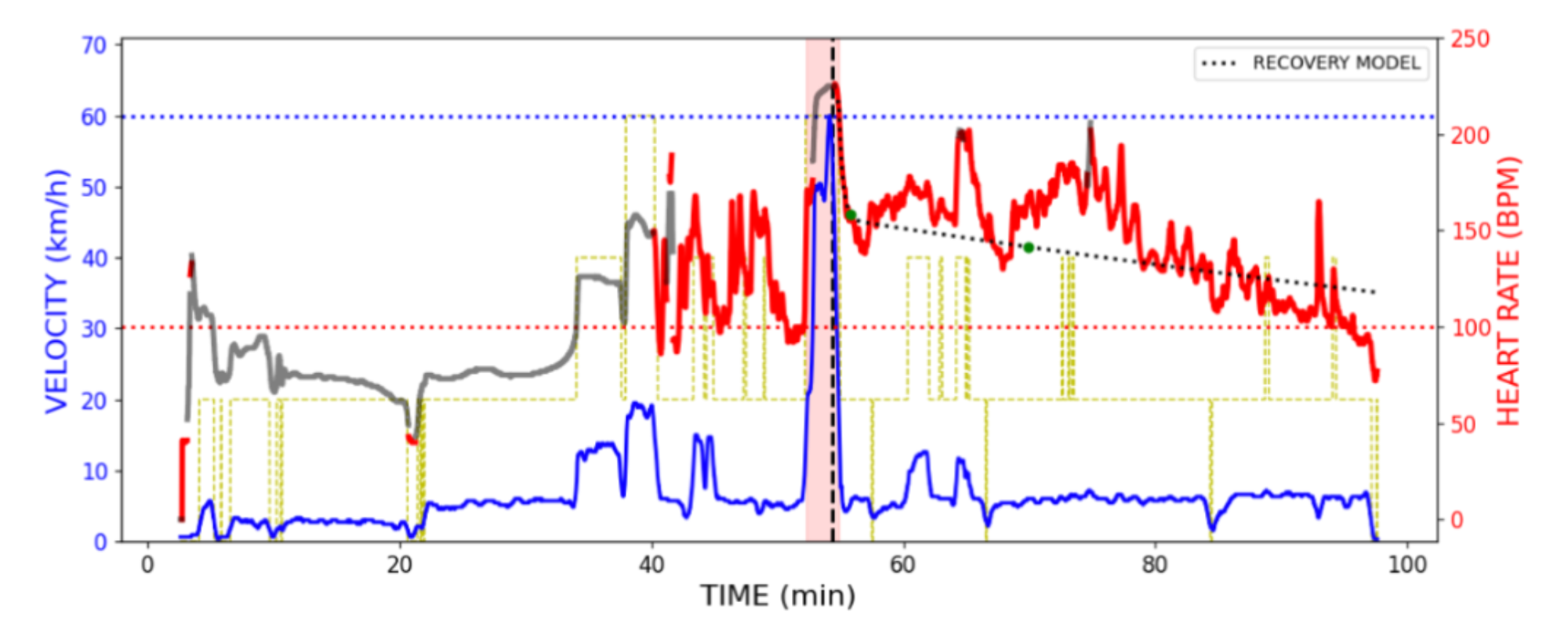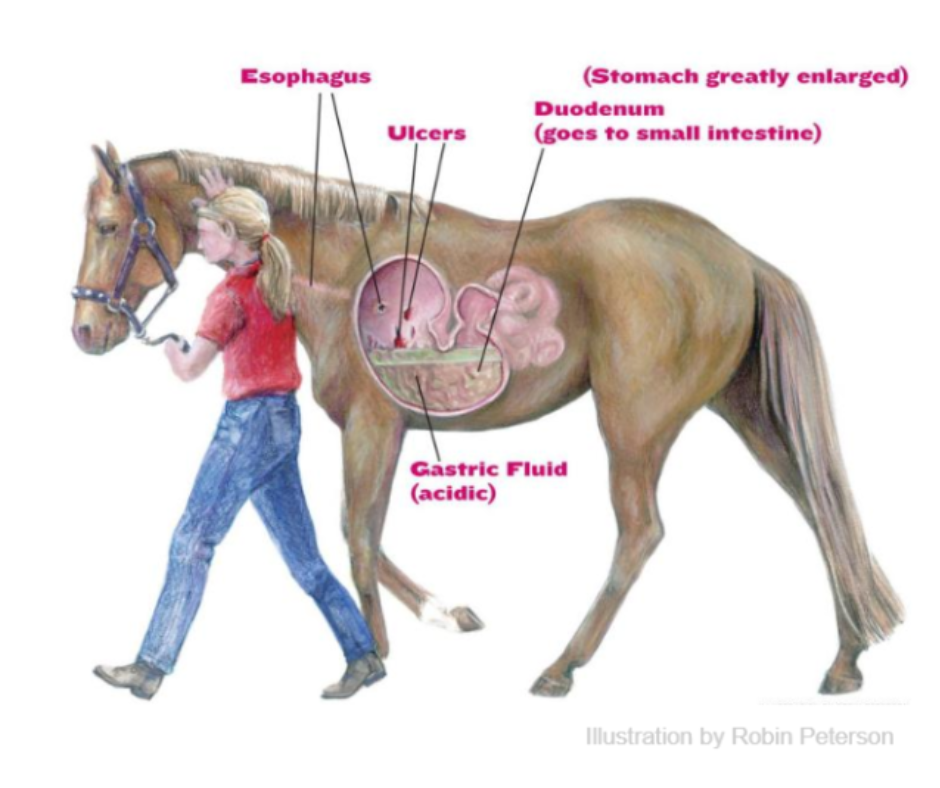Warning: number_format() expects parameter 1 to be float, string given in /var/www/wordpress/wp-includes/functions.php on line 425
“Stress can be defined as a state of worry or mental tension caused by a difficult situation.” according to WHO
It is now a few years since the question of the equine welfare, which can be defined, according to the IFCE (The French Horse and Riding Institute), as “the good mental and physical health of the animal”, is developing and taking more and more importance into the mentalities. Some studies have been carried out and initiatives have been taken with the objective to sensibilize about the subject. The IFCE has notably led a survey in favor of animal welfare, relating different subjects as the evolution of the practices in favor of the horse.
In 2021, some figures of the equine world, like the National Federation of Horse, the Groupement Hippique National or France Gallop and Le Trot, established the Equine Welfare Charter.
Horses are sensitive animals, naturally subject to stress. In the specific case of racehorses, real top-level athletes, this sensibility can be accentuated by some factors. These horses are hard at work every day, by their training, the travels and competitions. These activities expose them to many parameters which can accentuate their stress’ threshold and affect their performances. This parameter must be carefully monitored to ensure that it does not compromise the horse’s performance and well-being.
1. Psychology, factors, and manifestations of stress in the horse athlete
Horses have developed some behavioral and instinctive natural habits to answer to their needs and survey. Even in working horses, these instinctive behaviors are always present and can occur during exertion or at rest.
Social and instinctive behavior:
These horses are naturally fitted to an escape reflex, given their status as prey in the wild. In the racehorses’ case, this instinctive behavior can be felt at different moments, like during the training. A situation they perceive as dangerous, like a sudden noise or something surprising, could cause an important stress to some horses, causing them to react suddenly with swerves or quick starts.
These reactions will alter the training, whether in terms of the horse’s psychological or physical conditioning. The stress will tend to accelerate their heart rate, which can be up to 220 beats per minute, for a galloping norm of 160 BPM. This phenomenon is a natural response of the horse, which allows him to react quickly in case of danger.
Here is an example of the training of Arion, a nine-year-old thoroughbred, recorded with EQUIMETRE on May 28th, 2024.

Blue Curve =Speed
Red Curve = Heart Rate
These results present a peak of increase of his heart rate, grown here to 225 BPM and highlighted in red. His heart rate stays really high while his speed has decreased.
During this training, a sudden loud noise surprised and stressed Arion, who swerved. The increase of his heart rate shown above seems to represent this event.
Thanks to this statement and the analysis of Arion’s heart rate, it is simpler to understand the physiological impacts of some of his reactions. So, it is possible to see the modification caused by an event on his physical and physiological conditioning for the training.
Stress’ factors
Racehorses have a really busy schedule and a daily sportive activity. These training and physical requests can, in the case of overwork or a lack of rest time post-training, accentuate the sensibility of the horse and the development of his stress.
Travel represents a major stress source for horses. The containment, the movements of the vehicle and the different sounds contribute to this stress. Sports horses can be subject to long-distance travels between racecourses and training centers during the racing season, which can affect their daily stress threshold.
Physiological stress manifestations
In horses, stress can affect internal functioning, particularly digestive health. Indeed, the stomach will tend to increase his gastric acid production (hydrochloric acid which helps to reduce the food’s size) This will assault the mucous membranes, leading to inflammation that can cause colics or gastric ulcers.

The stress level in horses can also be lifted by analysis of his cortisol level. The cortisol is an adrenal cortex which is involved in many metabolisms, particularly carbohydrate metabolism (CNRS). It is generally considered like the stress’ hormone because its level will grow in case of acute stress. A horse should have a cortisol level of around 250 nanomoles per liter of blood, a figure that can be twice as high in stressful situations. It’s therefore possible to get an idea of a horse’s daily or momentary stress threshold by taking a blood or saliva test to analyze cortisol level.
Behavioral stress’ manifestation
Out of physiological repercussions, the stress can also be raised thanks to some modifications of his behavior. A horse can develop an unpredictable behavior, which can be dangerous for him, humans or his congeners. This behavior can result in restlessness in the stall or in the form of nervous and locomotor weaving . A horse who will have a weaving will tend to sway his head from left to right, and a horse who has a windsucking will suck in air by bending his neckline, then spit it out with a belching noise. Two behaviors present in anxious, isolated or stressed horses, may cause colics or abnormal wear of teeth.
2. The impact of the stress on the performances
During races, horses are faced to sound and a crowd quite substantial, but also to the stress that the jockey himself will feel in view of the competition. This stress will impact on horses’ performances during races. Alice Ruet, ethologist and research and development engineer, explains this in an episode of the podcast Let’s talk horse (in french) of the IFCE. “Indeed, horses will perform less well on race days than in training. This less of performances will not go until the underperformance, but will be impacted. This can be explained in part by the different factors of stress listed previously, which will impact their physical conditions.”
In the same podcast, Alice Ruet explains that “The stress can also have an impact on the short-term memory of the horse, so his work memory.” This factor will influence the efficiency of the training. If the horse’s memory is not optimal during the training, he will remember only vaguely, if at all, which will block his progress and, subsequently, his sporting performance.
3. Preventive solutions to reduce stress and ensure well-being: 3 Analysis factors
Stress in horses is not always visible simply by observing them. Numerous scientific studies have demonstrated that it was possible to establish some objective indicators for measuring the horse’s welfare.
1- The feeding
The feeding is one of the most important factors for racehorses. Horses require an adapted feeding which will respond to their different needs. On one side, the forage represents more than the half of the feeding of the racehorse, allowing them to have a sufficient dose of fiber in their diet. To complement, athlete horses will need different intake like concentrated feed provided by cereals like barley, but also lipids and minerals.
A stressed horse will therefore tend to have a reduced appetite, which can even lead to undernutrition in extreme cases, which would have repercussions on his performance or physical condition by impacting his immune and hormonal systems.
2- The environment
Life conditions and environment of the horse can have real impacts on his behavior. The Department of Biomedical Sciences, University of Veterinary Medicine, Vienna conducted a four-year retrospective study on the impact of the environment on horses. 225 thoroughbreds have been analysed and scientists have found that 34.7% of horses presented some abnormal stereotypies like weaving or windsucking. Horses concerned were mostly housed in stalls, which could be a factor of the development of stereotypies.
Giving a horse access to an outdoor or a paddock with grass available, allows him to recover simply after training. These moments of relaxation avoid the development of unusual behaviors such as the stereotypies mentioned above, and promote the horse’s psychological conditioning.
3- The health
Here, the health concerns specifically physical and physiological repercussions, which can be caused by the training if this one is too intense or if the recuperation after is too short. Checking the state of health of a horse all season long is really important to ensure maintaining physical fitness and well-being, and ensuring that the pace of activity is appropriate.
A horse subject to relatively high levels of stress will see his heart rate increase over the long term, in addition to stress peaks.
This can be controlled using monitoring devices to track the horse’s performance and health over the long term. This makes it easier to detect heart rate anomalies and try to find the cause before more serious pathologies develop.
Conclusion
Stress can therefore be a real hindrance both to a horse’s progress and to his sporting performance. It can affect both behavior and health, by disrupting the horse’s metabolism. These physiological disturbances can help assess the horse’s stress level by monitoring parameters such as heart rate or cortisol levels.
Regular monitoring of a horse’s health and well-being is a real asset for improving his performance. This can be achieved with monitoring tools such as EQUIMETRE. This monitoring helps to ensure that horses are fully fit, both physically and psychologically, to race, and thus avoid injuries or health problems.
Mots clés : stress, welfare, racehorse, training, performance

